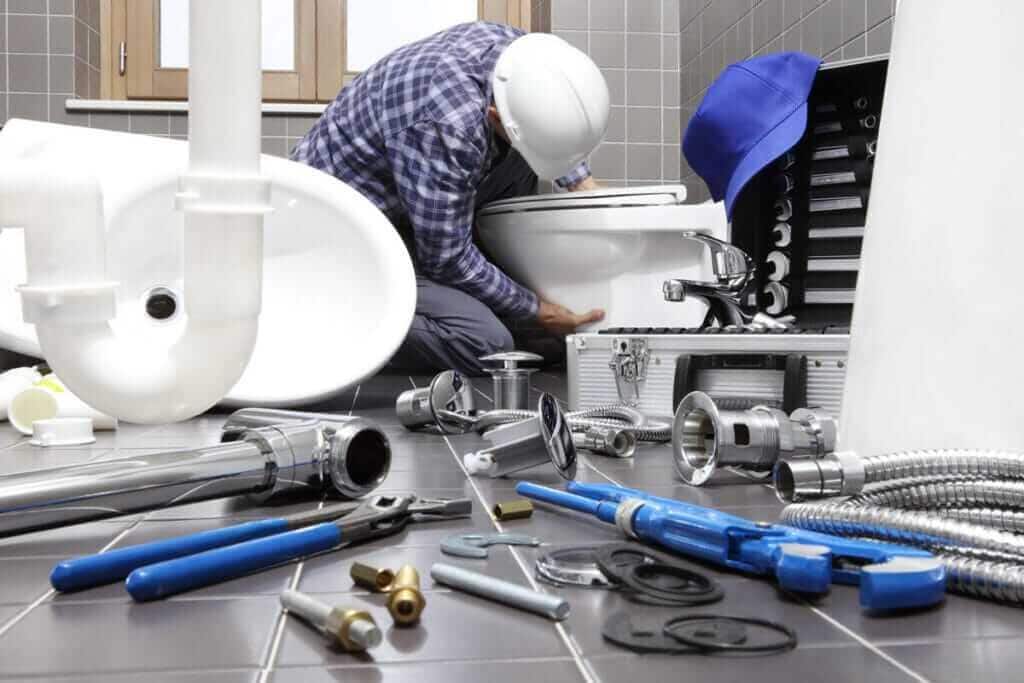The Development of Plumbing: An Concise Chronicle
Plumbing is a crucial part of contemporary living, often not appreciated until a problem arises. From the historic water systems of Rome to today's smart plumbing solutions, the progression of plumbing has greatly shaped our daily routines and health. Understanding the history of plumbing helps shed light on the incredible advancements we have witnessed in this field and emphasizes the importance of qualified plumbers in maintaining our homes.
As we delve into this fascinating journey, it is crucial to acknowledge the frequent plumbing problems that many property owners face today, along with realistic solutions and preventive measures. Whether it's dealing with a broken pipe or insufficient water pressure, knowing when to fix these issues on your own or hire a specialist can make all the difference. Come along as we investigate the history and changes of plumbing, while also providing valuable insights into maintaining your personal plumbing system for peak performance and peace of mind.
Frequent Pipe Problems and Solutions
One of the most typical plumbing problems homeowners face is a clogged pipe. This issue can stem from a buildup of food waste, human hair, soap buildup, and other debris. To fix a blocked pipe, you can initially by using a drain plunger or a drain snake to dislodge the blockage. If these methods do not work, a mixture of baking powder and apple cider vinegar can be added down the pipe, then hot water to help dissolve the clog. Regular maintenance, such as using sink strainers and avoiding unsuitable materials down the sink, can prevent clogs from arising.

Another common issue is reduced water flow, often caused by scale in the plumbing system or leaks in the plumbing infrastructure. To diagnose blog here , check multiple faucets to see if it's a specific problem, then inspect the master shutoff valve to ensure it is fully open. If deposits is the cause, you may need to clean the screen filters on sinks and showerheads. In some cases, a professional plumber may need to address issues or replace corroded pipes to return normal water flow.
Lastly, cracked pipes are a severe plumbing emergency that can cause significant damage to your home. The first step when facing a burst pipe is to locate and shut off your water supply immediately to prevent flooding. Subsequently, you should contact a licensed plumber to evaluate the damage and make necessary repairs. Preventative measures include properly insulating pipes during colder months and performing regular checks to detect any signs of wear or drips to lessen the risks of burst pipes.
Preventive Pipe Maintenance
Routine preventative maintenance is important for any property owner looking to avoid frequent plumbing issues. Frequent inspections can help identify possible issues before they escalate into costly repairs. Homeowners should get accustomed themselves with signs that signify a plumbing problem, such as unexpected water costs or low water pressure. By taking proactive steps, such as inspecting for leaks or blockages from time to time, you can save hours and cash in the future.
Another key aspect of preventative maintenance is the periodic readiness of your plumbing system. For instance, in the winter months, homeowners should insulate pipes to prevent frost and bursting. In the spring and autumn, it's advisable to conduct thorough plumbing checks, as this is a great time for problems like blocked drains and hidden leaks to arise. By staying proactive of weather-driven shifts, you can maintain the longevity of your plumbing network.
Lastly, it is wise to invest in professional plumbing services for routine maintenance checks. Hiring a licensed plumber can provide confidence, as they possess the knowledge and equipment needed to handle complex plumbing issues. This can be especially helpful during crises when every minute is of the essence. By building a connection with a trusted plumbing service, homeowners can ensure that their needs are met promptly and effectively.
Emergency Plumbing Tricks and Guidelines
In moments of plumbing emergencies, the first step is to remain calm and assess the circumstances. If you notice any signs of a burst pipe or severe leak, locate your main water shut-off valve and turn it off right away to avoid further water damage. Having a wrench or tool by the shut-off valve can save critical time when an emergency arises. Understanding how to shut off your water in an emergency is crucial for every homeowner, as it can help mitigate the impact of flooding in your home and allow you to take further action more effectively.
Once the water is shut off, it's vital to pinpoint the source of the problem. For minor leaks or clogs, have tools and materials on hand for quick fixes, such as pipe tape, a plunger, or a drain snake. In cases where the issue involves a more complex problem, like a sewer backup or severe pipe damage, it is wise to call a professional plumber. Keeping a reliable plumbing service in mind is helpful, as they can respond quickly and handle emergencies when time really matters.
Finally, after addressing the immediate concern, implement steps to prevent future issues. Regular inspections and maintenance can go a long way in avoiding plumbing disasters. A yearly plumbing checklist helps to ensure that your pipes and fixtures are in good condition. Look for signs you may have a hidden leak or areas that might need some extra attention, especially leading up to winter, when cold weather can lead to frozen pipes. Making emergency repairs quickly and efficiently not only resolves the immediate problem but also protects your home from potential long-term damage.